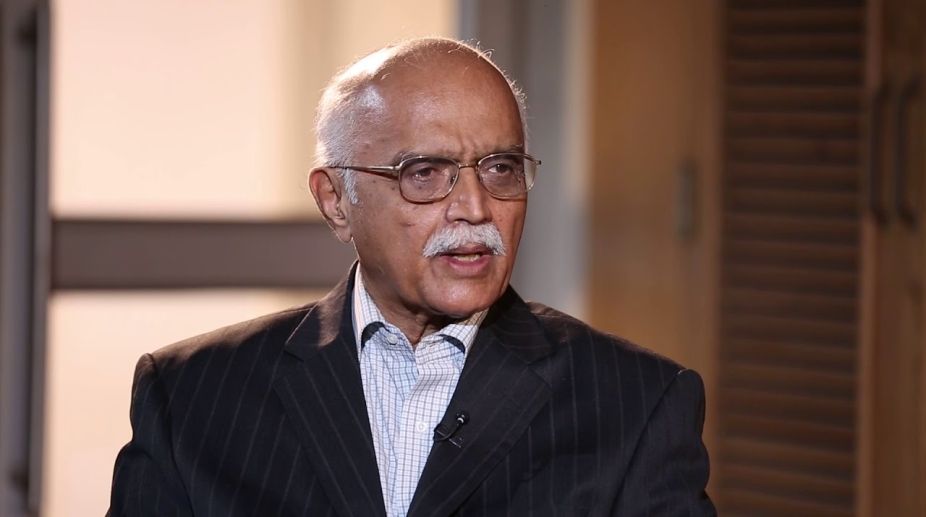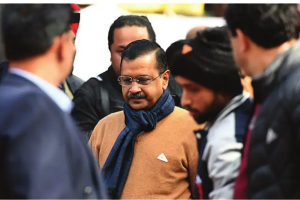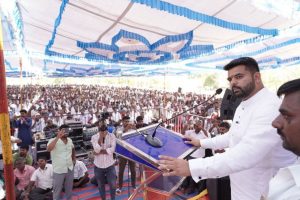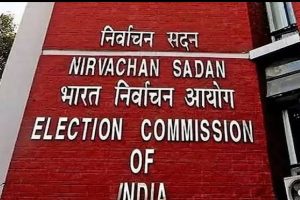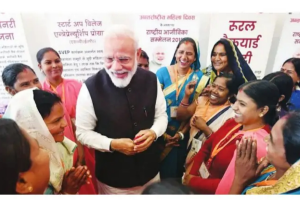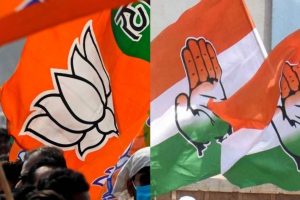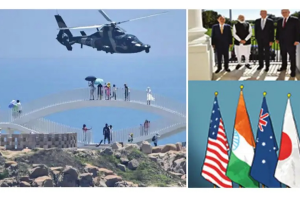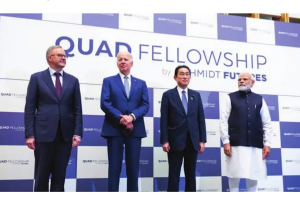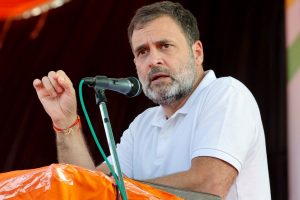In ndia’s internal security problems are multiplying and becoming more complex and explosive. But there is little public awareness of the gravity of the problems and the threats they pose to country’s safety and security. The spectre of terrorism of different complexions, caste and communal violence, escalating crime, proliferation of arms haunts the country. The problem is compounded by the fact that the police, the main agency for law enforcement and order maintenance, are becoming increasingly unable and incapable of effectively combating the rising tide of violence and disorder due to various constraints.
Vapalla Balachandran’s book is a timely and useful study, containing a professional analysis of the nature and dimensions of the internal security problems and the ways and means of fixing them. The main responsibility of containing the forces of internal disorder and disruption and keeping the country safe is on the police. But it has become a rusted instrument. It is overstretched, overburdened and hobbled by constant political interference. The author has pinpointed how in many other countries the burden of internal security and enforcement of criminal laws is evenly spread. The entire burden, unlike India, is not thrust on the territorial police.
It is shared by other organs. In this age of globalisation terrorism including cyber terrorism, drug trafficking, trafficking in women and children has become transnational and it is no longer possible for the ill-equipped and ill-trained state police forces to grapple with them effectively.
Specialised expert national agencies are necessary for dealing with special offences and the state police force must work in tandem with them. Further, the state police forces are saddled with various other miscellaneous duties to the detriment of its main responsibility of prevention and detection of crime. It has been estimated by the National Police Commission that the police spend hardly 30 per cent of its time in investigation of cases — its main job. Consequently, the quality of investigation is poor and a large number of cases end in acquittal. Now in India crime pays and the gains of crime outstrip the risks of crime.
There is also lamentable lack of coordination between different state police forces and central agencies. Intelligence alerts of the Central Intelligence Bureau are often disregarded by state police force as they are viewed as unspecific and not actionable. In a chapter on the devastating terrorist attack in Bombay on 26/11 Balachandran points out that ominous signal of the impending attack were coming, but the available intelligence emanating from different sources was not properly disseminated, analysed and acted on. With a proper system in place the ghastly tragedy was avoidable. Following the carnage there was nation-wide criticism.
The Chief Minister of Maharastra, Vilas Rao Deshmukh, Home Minister, RR Patil and the Union Home Minister, Shivraj Patil had to resign. The state government appointed a high level enquiry committee to find out if the Mumbai police neglected intelligence alerts received by it and if it was equipped and prepared to thwart such Commando attacks. The state government set up a two member enquiry committee and the author was a member of the enquiry team. The report, despite the clear disinclination of the committee to do so, was promptly classified as secret by the state government which precluded any meaningful public discussion of the tragedy.
There was no open discussion and only ill-informed criticism. In the chapter on emergency Balachandran dilates on the internal security scenario of the country before the proclamation of emergency and obliquely suggests that internal security considerations influenced Indira Gandhi’s decision to proclaim the emergency. Political considerations constituted only the tip of the iceberg. This assumption is not borne out by facts.
While serving in the Shah Commission of Enquiry, I had the chance to rummage files and records which clearly revealed how the decision was taken by Indira Gandhi and the coterie around her to continue in power and subvert the constitution for this purpose. It was not redeemed by any concern for country’s security. Balachandran has given some useful and practicable suggestions for strengthening and rejigging the country’s internal security apparatus. Some of them find mention in National Police Commission’s Report. The need for law to cover Intelligence agencies and offer protection to intelligence operatives in the field cannot be over emphasised.
However, some suggestions like the central government designated agency inspecting state police systems, though unexceptionable in principle, will be stridently opposed by state governments and spawn controversies. Any study of the country’s internal security challenges will remain incomplete without highlighting the hard fact that the main pillar of the security architecture, the police, is in a sad state of disrepair and unless some urgent steps are taken to rejuvenate it and make it apolitical and neutral no perceptible improvement in the situation will take place. Political masters are dead set against police reforms as it will weaken their stranglehold over the police.
It seems keeping India safe will remain a forbidding job. The book is a useful edition to the literature on internal security problems afflicting the country. The author’s analysis is lucid and some of the observations are insightful. It is hoped that the country’s political masters will take note of some of the corrective measures suggested by the author before it is too late. Needless to say, the political and economic development will be imperilled in the absence of internal peace and stability.
(The reviewer is senior fellow, Institute of Social Sciences Former director general, National Human Rights Commission Former director, National Police Academy)

